Voiceover of this guide:
Your Crew’s Mobile Workshop
Whether you’re purchasing one service truck or an entire fleet of utility vehicles for your company, it pays to do your homework. Fortunately, you’ve just stumbled upon your cheat sheet!
In this guide, we’re going to look at some key points to consider when deciding which service truck to buy for your needs and how to go about buying said vehicles.
A service truck, also known as a mechanic’s truck, utility truck, or service van, is a service vehicle designed to assist technicians and other workers in providing mobile on-site installation, maintenance, or repair services across a range of specialties—such as automotive repairs, carpentry, pool service, HVAC, plumbing, electrical, communications infrastructure, landscaping, pest control, or industrial maintenance.
Before you hit dealership lots or even jump into online marketplace listings of service trucks, it pays to consider precisely what you will need a truck to do.
Carefully list out everything you need in a service truck or other maintenance vehicle. Doing so will allow you to purchase the right size and style of truck or van.
Failure to do so may result in being left with either a fuel-guzzling behemoth that fails to pay for itself or a service truck that fails to perform.
What will you need your service truck to do?
Do you need your service truck to haul tools and gear?
Will it need to help you tow, weld, or be able to handle a crane?
Depending on what you need the truck to help you do will help you select the proper chassis size—and therefore, the truck size.
For the most part, service trucks come in three size categories—light, medium, and heavy duty.
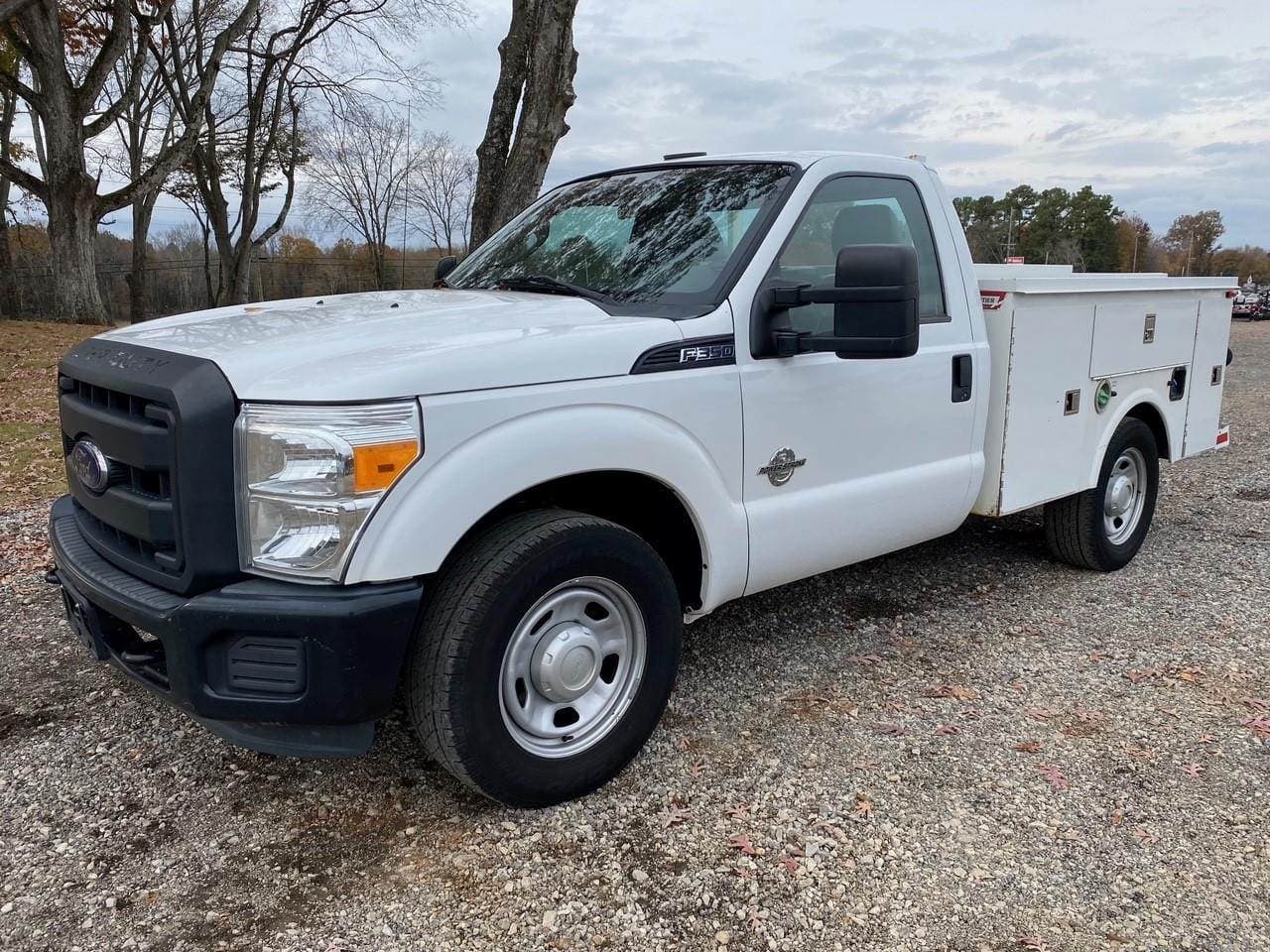
On the smaller end (including basic pickup trucks equipped with toolboxes) will be light duty service trucks—having about a 15,000-19,000 lb gross vehicle weight rating—also known as a vehicle’s GVWR. These trucks will range from having about a 9-to-11 foot body and 84-inch cab-to-axle length. For reference, these trucks will be your GM 4500 or 5500 truck models or a Ford F-450 or F-550.
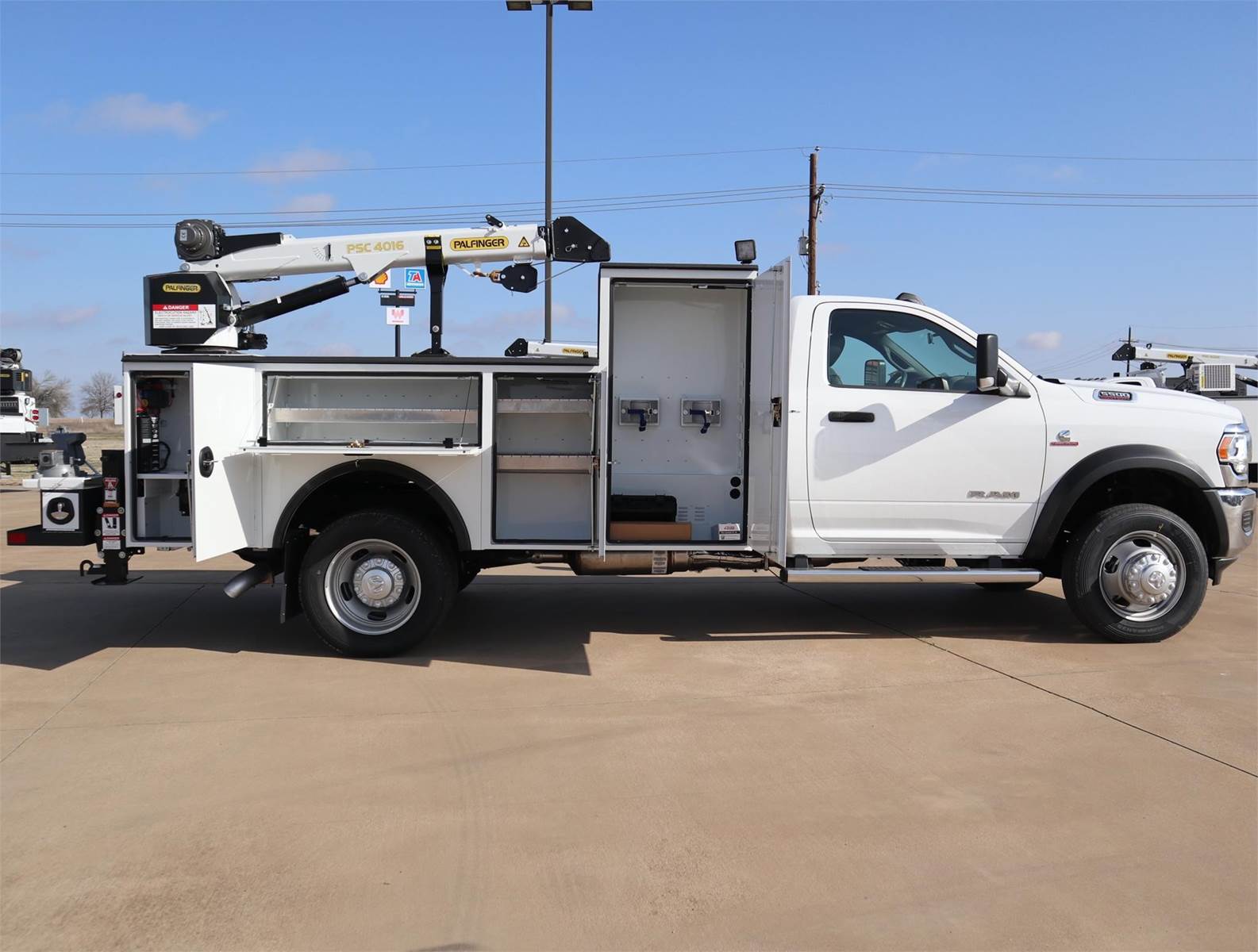
Right down the middle range will be medium-duty service trucks— those with about a 26,000 lb GVWR, an 11-to-13 foot body length, and a slightly larger either 84-inch to 108-inch cab-to-axle length. These will also have a “Class 6” chassis. This is the size in which drivers likely need to possess a CDL (commercial driver's license) and begin to keep logbook details in reference to the vehicle.
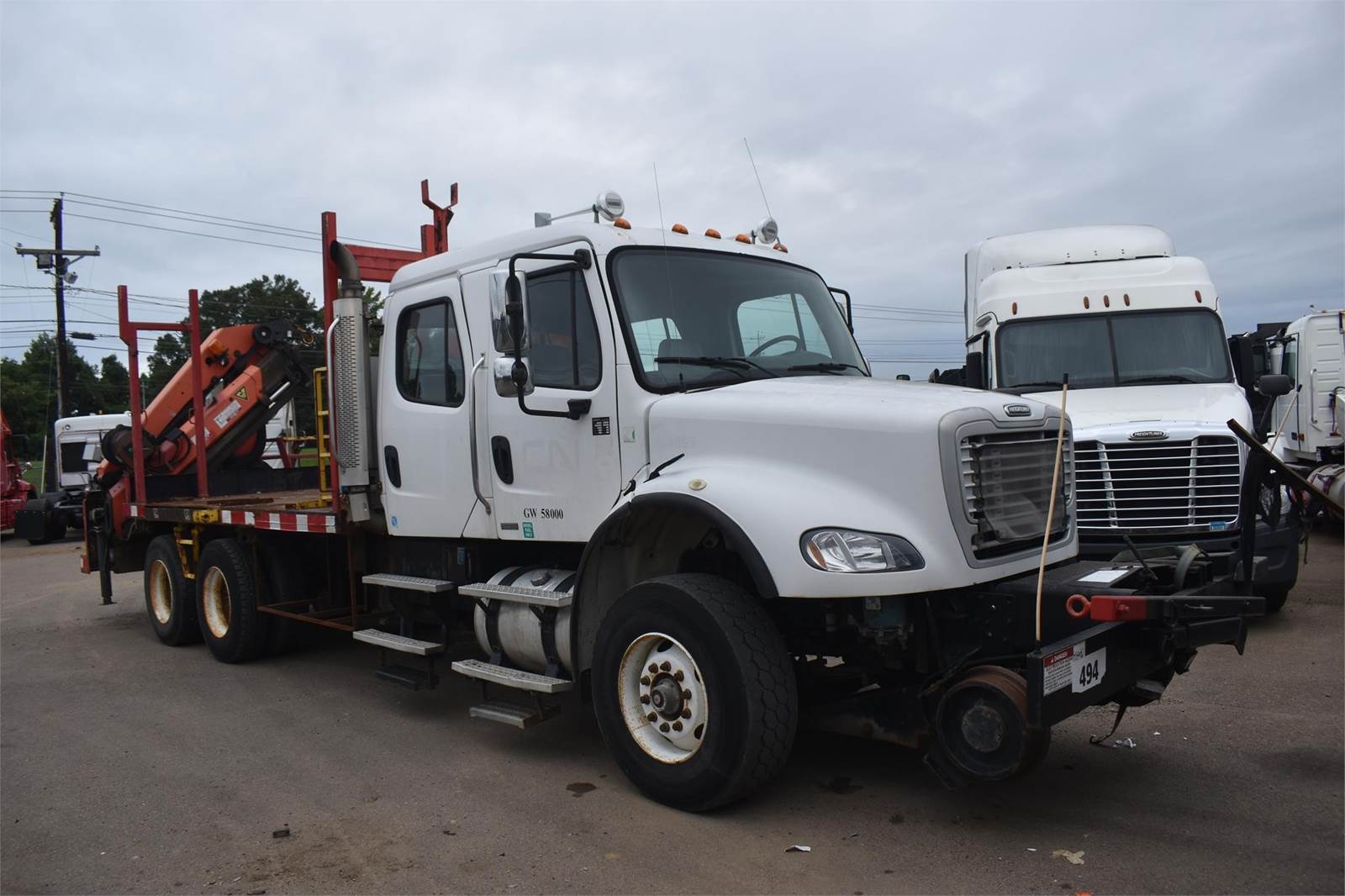
The largest service trucks, heavy-duty service trucks, are those equipped with a higher GVWR of about 33,000 lbs, a Class 7 chassis, air brakes, 14-foot bodies, and cab-to-axle lengths up to 120 inches.
“Which is better—gasoline or diesel work trucks?”
Another important consideration when selecting the right service truck for your needs is whether or not to purchase vehicles with diesel or gasoline engines. Which is the better choice?
For larger service trucks in need of efficient power for towing or hauling without hesitation, diesel engines make the most sense—and cents. However, for smaller service trucks that are used mostly in cities and don’t necessarily need abundant power (possibly just enough to get the truck, supplies, and maybe a few crew members to a job site), gasoline truck engines will be more affordable—at the pump and in the repair shop.
“Why is cab size important for service trucks?”
When it comes to cost-cutting measures to consider when purchasing a service truck, cab size should not be one of them. Though it can seem easy to write off a roomy cab size as an unnecessary luxury, it is important to remember just how much time service technicians spend with their trucks. For many service personnel and workers, their service truck takes on a similar function as an office for any other worker. Some may not report to a headquarters but once a day or even less often for more far-flung field workers.
Also, a service truck will likely double as a crew transport vehicle. All of this should make service truck buyers place themselves in the workboots of those using the trucks (if they aren’t the operators themselves) when considering cab size and features.
“What tools storage options should be considered for service trucks?”
Time is money and time wasted looking for a particular tool is—you guessed it—wasted money. For this reason, investing in proper and professional tool storage for service trucks is definitely not a waste of money. Fortunately, there are a variety of toolbox compartments and other specialized tool storage solutions available for service truck bodies.
“What body types are available for service trucks?”
To even further accommodate service professionals, there are also a wide variety of service truck body styles available.
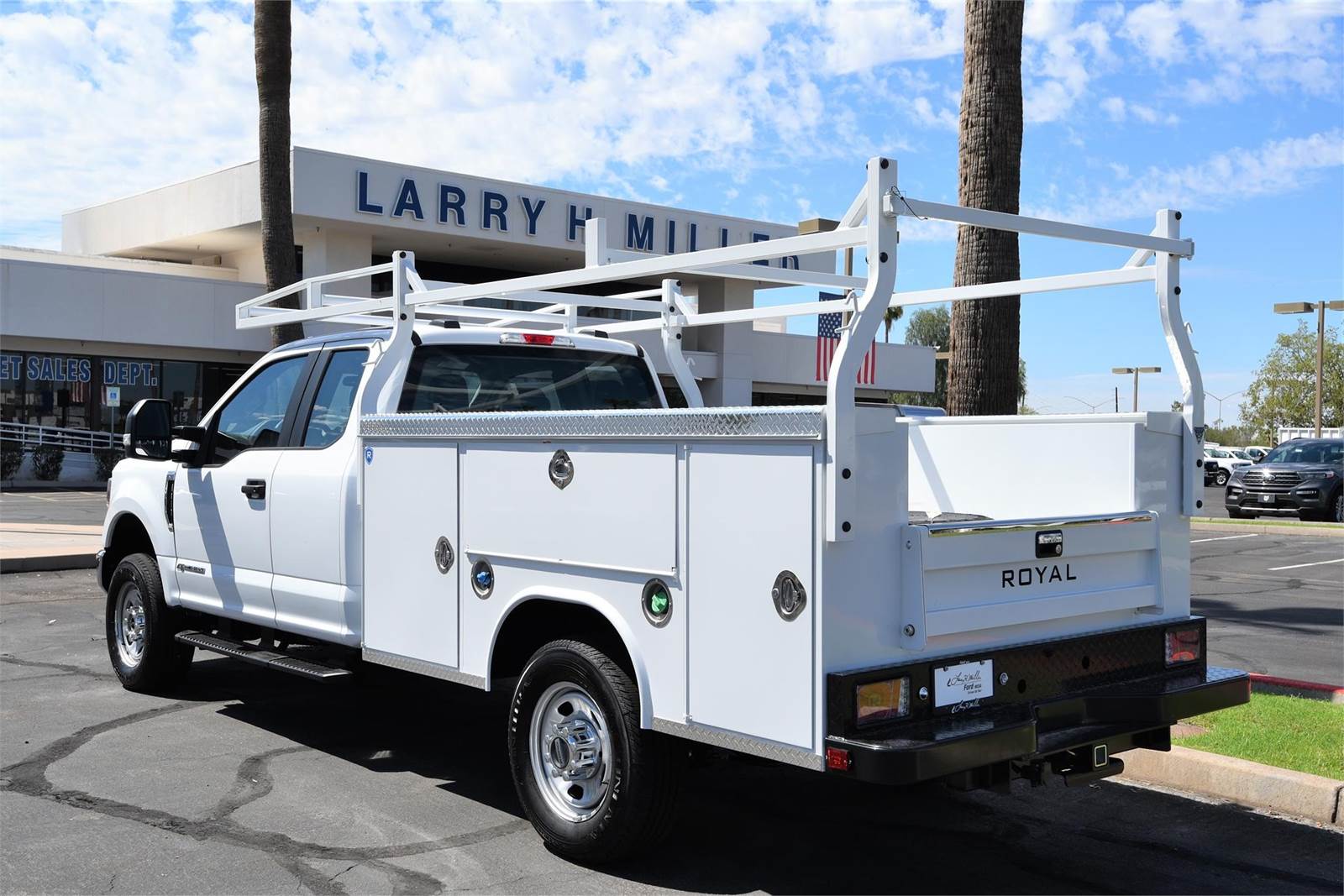
Standard service truck bodies, also known as traditional bodies, are equipped with central cargo beds with tailgates containing assorted tool and equipment storage compartments installed along the sides of the body. Depending on the need for strength versus fuel economy, either steel or aluminum varieties exist for standard service truck bodies. Even within this category of bodies, specialized options exist to better accommodate service professionals.
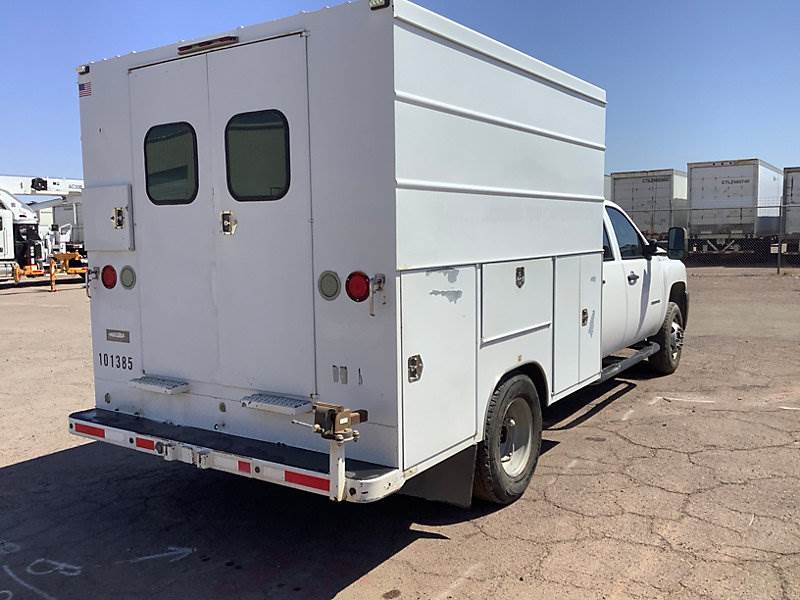
Unlike those open to the air like a pickup truck, an enclosed body service truck has a completely enclosed cargo compartment. This enclosure allows for enhanced security for tools, supplies, and workspace in addition to protection from the elements. Some enclosed service truck bodies contain doors with windows and even interior lighting for a self-contained workspace.
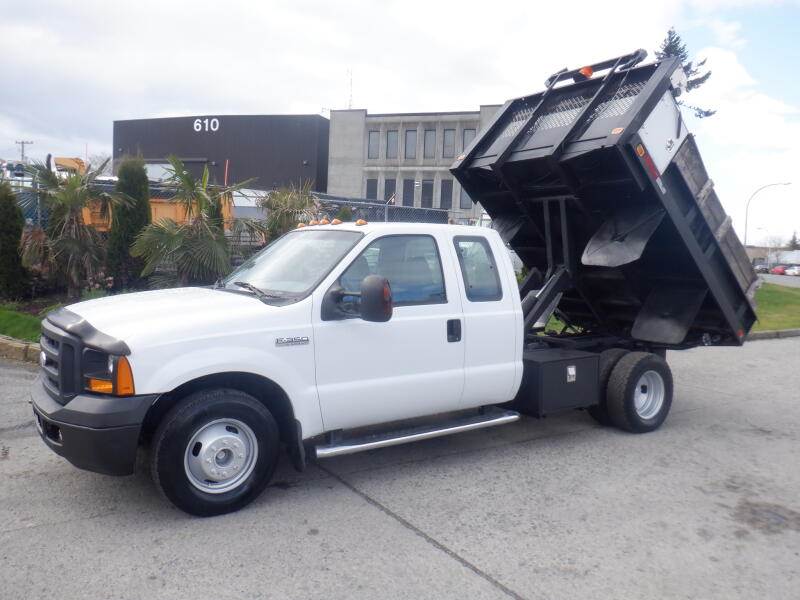
Service trucks that need to quickly and efficiently offload materials can be equipped with dump bodies. Service truck dump bodies, depending on the style, can dump materials off the back or to the side of the body using hydraulic or pneumatic components. A variety of tailgates accommodate dumping and spreading motions. Landscaping crews especially prefer dump truck bodies for their ability to load, haul, dump, or spread materials—such as dirt, sand, or gravel.
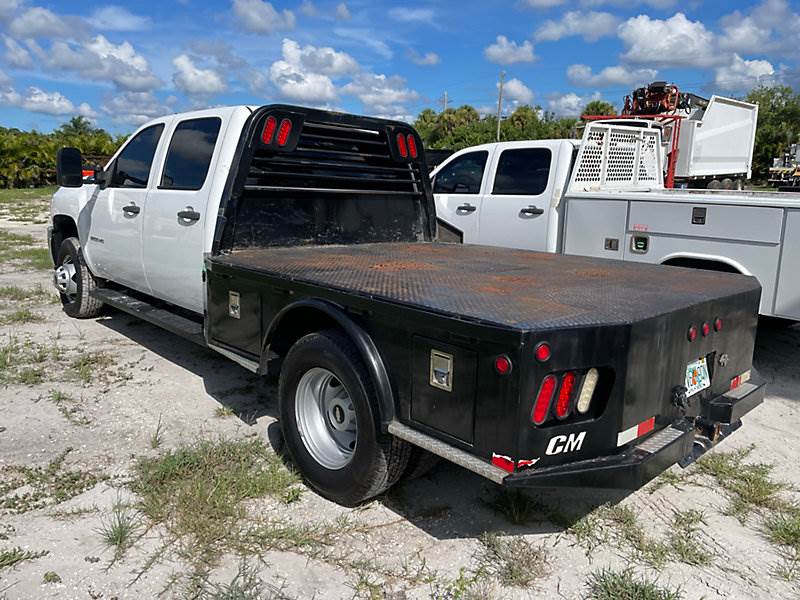
When oddly shaped or oversized cargo needs to be transported, platform body service trucks are a great choice. The platform body’s flatbed allows service personnel to haul equipment, supplies, or materials. Though functional, additional tie-down straps or ropes will be necessary to secure said cargo to the platform bed. Like dump bodies, the non-dumping platform truck bodies are especially popular with landscaping crews, as they easily accommodate landscaping tools, plants (such as sod and potted plants), and necessary materials.

For crews needing to perform installations, maintenance, or repair of elevated components, crane bodies are necessary for any bucket truck—also known as a boom lift or cherry picker. Aside from the crane elements, the crane body must provide substantial support and weight distribution for thousands of pounds of equipment components. Crane bodies provide immense support in addition to the maneuverability of components.
While considering what truck body type will best serve your needs, it is also necessary to consider which material will make the most sense. Steel truck bodies are robust, though are heavier than aluminum. Aluminum is lightweight, resulting in increased fuel economy for your service trucks, though is more easily dented and bent.
“Should I buy a new or used service truck?”
There are many advantages and disadvantages to buying either a new or used service truck. Let’s first take a look at the pros and cons of buying a used service truck.
Many like to buy used service trucks for a variety of reasons—the main reason being that service vehicles tend to lose value fairly quickly, especially after about the first 3-5 years. That means that you may wind up saving potentially tens of thousands of dollars on a service truck by buying a used model. Used trucks are also more likely to have the necessary upfits and modifications you would have wanted to install on a new truck, making them closer to being ready for service upon purchase.
The main disadvantage of buying a used service truck is the mystery of not knowing the true condition of the vehicle. Though you can read the mileage and have the vehicle inspected, you likely won’t be able to gauge how much the truck was left idling, how careful the past owner used it, or how well it was maintained. Also, if you’re wanting a specific style of service truck, finding a used truck that fits this bill for the price you want can be trickier as opposed to customizing a new truck to meet these needs. Other drawbacks include higher interest rates (since they may not survive the life of the loan) and dramatically lower resell value when you’re needing to upgrade.
The benefits of buying a new service truck range from that “new truck smell” to a lower interest rate on a loan (versus a used service truck note). Also, in terms of customization and upfitting your service truck, new trucks can be modified with any component on the market to suit your specific needs. Other benefits include peace of mind in terms of use and performance. There will be zero mystery about the wear and projected performance of the vehicle. Also, depending on the size and style of the truck, because of technological advancements and wear-and-tear, a new service truck will have better fuel economy than older, used service trucks.
On top of all of this, there’s a good possibility that your new service truck will have a warranty on a number of components and maybe even some included routine maintenance services. And when you’re ready to upgrade the truck after a few years, your service truck will hold onto much more value than a substantially older used service truck—especially if you kept ample records for the next buyer.
New service trucks are great, but they’re certainly not cheap. Between the upfront cost to insurance and modifications, you’ll definitely be paying much more on the front end. Depending on how much capital you have to put into a service truck or a service fleet, buying a new service truck may simply be unaffordable—though you may be able to rationalize such an expense after you know the service truck will be able to pay for itself.
“Should I buy or lease my service truck?”
The question of whether to buy or lease your service trucks is a question of balancing ownership with responsibility. Some claim that the decision is a no-brainer, even when they disagree. Let’s look at the pros and cons of buying or leasing your service truck.
Leasing a service truck or fleet is great for entities that accept that they will always have a monthly truck payment—whether in payments, maintenance, or replacements. Working with a fleet leasing company, you can get up and running for less than the cost of buying, enjoy flexible payment arrangements, and sometimes experience included equipment upfits. Leasing also typically means less of your cash flow is tied up in truck ownership so that it can be utilized elsewhere. Many lease companies also include service packages, roadside assistance, modifications, and even company branding.
If you plan on ever owning your service truck but still would like to lease, lease-to-own options exist—though they will often be more expensive than simply going the buying route in the first place. Also, depending on the leasing company, you may have usage restrictions on your leased service vehicle—often including mileage, service providers, and insurance. For this reason, it is important to carefully review your lease terms.
Buying a service truck will almost always result in paying less for your truck by the time it has reached the end of its service life. Because you own the truck, there are no restrictions on vehicle modifications, mileage usage, insurance providers, service providers, or any other uses that could possibly violate lease terms. Once you’ve paid the note on the service truck, you can keep using it without monthly payments (aside from maintenance, fuel, and registration) or you can sell it and replace it with a newer service truck.
Buying a service truck tends to be more expensive out of the gate due to the cost of down payments, taxes, registration, and the cost of necessary upfits or modifications. And while it is true that when you buy your service trucks, they are your full responsibility, that can be a downside for many service companies. While fleet leasing companies frequently allow for vehicle upgrades, service truck owners may simply wind up with trucks exhausted of use or value taking up space in their parking lot.
“Where can I buy new or used service trucks for sale?”
By now, you probably have a better idea of what style of service or mechanic’s truck you’d like to buy or lease. Depending on the service truck’s size, style, and condition, you have a variety of purchasing or leasing options available to you.
Commercial vehicle dealerships near you are a great local resource for purchasing the fleet vehicles you need from a reputable seller within your own zip code. Many of these have vehicle lots where you can see the vehicles in person, take a peek under the hood, take them for a test drive, and receive answers to your questions in person.
If you’re in the market for a used service truck, fleet rental companies may be a great place to snag a great deal. These companies usually have lots much like normal commercial vehicle dealerships where you can get a first-hand experience of what is available. These companies have a strong need to offload older vehicles which means they may also have some lucrative incentives to get you to buy.
If you’re looking for steep savings, consider checking out service vehicle listings from private sellers—either individuals or companies looking to offload older fleet vehicles. Because most of these sellers are more motivated to sell than you are to buy, if you come armed with a knowledge of precisely what you want as well as vehicle red flags, you may be able to land some incredible deals.
Commercial fleet auctions may be harder to find and require a keen eye for dealbreakers. Still, auctions may also result in steep savings—especially when a seller is looking to offload an entire fleet of vehicles after an upgrade. While deals can be found at auctions, the inability to have vehicles professionally inspected prior to purchase makes these transactions a bit of a gamble.
If possible, never buy any service vehicles without having them inspected by an automotive repair professional that has experience with such commercial vehicles. Though such a lemon check may cost a few hundred dollars per vehicle, it will be money well-spent—either if they find an issue that keeps you from buying a lemon or simply grants you greater peace of mind about your purchase.
Kudos on educating yourself with this overview of what to look for when buying a service truck! But what’s the next step? Your next step is to start shopping to see what is out there.
To connect you with new and used service trucks for sale of every specialization, condition, and budget, your friends at My Little Salesman are excited to present you with hundreds of service truck listings from sellers all over North America.